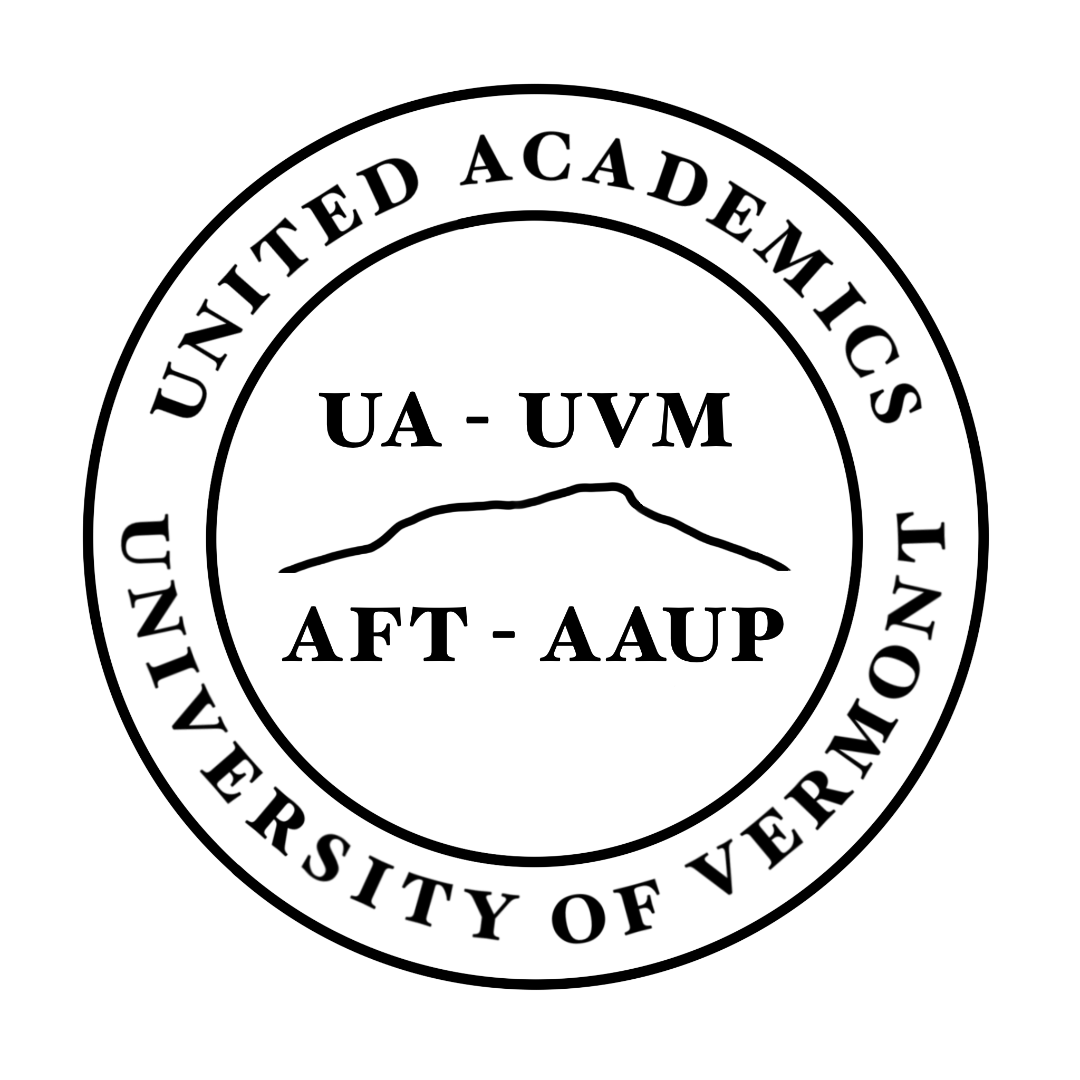A message from your union, which brought you faculty control of RPT guidelines
Dear colleagues,
Any day now the U.S. Supreme Court will release a decision in the “Janus case” (a.k.a. Janus v. AFSCME Council 31), and we can expect the conservative majority of the court to reverse the forty year precedent allowing unions to charge agency fees. We will be in contact with membership about the specifics of the decision shortly after it becomes public.
Today I write not to explain why I think the expected decision is wrong (though I do). Instead, I want to talk to a particular group: those of you, current fee payers and perhaps some members, who might be uncertain about the value of membership in United Academics. Non-members will no longer be charged 0.8321% of their salary as a fee for the services provided by the union. Why is membership in UA worthwhile?
Certainly, UA, like unions in general, has had a positive effect on salaries and benefits over the long term (see our website for details). But I would be the first to acknowledge that, while the raises in our latest contract are solid, they are not dramatic improvements.
This is about more than money. I encourage you to look over the items under “Why a Union?” on our website, or perhaps review some of the emails I have sent out over the year. Consider talking to colleagues who have been helped by the Contract Administration Committee, in small ways (e.g., straightening out the disbursement of summer money) or large (e.g., correcting unfair behavior by a dean towards a tenure track faculty member, or helping a faculty member whose privacy is threatened by a partisan journalist).
Also, I get it that you may not like something, or many things, about UA. There’s the conflict with the administration that many find annoyingly strident, for example, or the extra layer to the bureaucracy that results in things like work load forms. In that you are not different from most members. Personally, I do not enjoy the adversarial relationship with the administration that comes with negotiating and defending a contract, and it sometimes takes me some effort to get along with other union members when faced with inevitable disagreements about politics or style that occur in a democratic organization.
The union is not perfect. But it is considerably better than its absence, and it only works as long as members support it.
For me at root it is about faculty governance. When I was in graduate school, I never imagined for a minute that I would be spending time as a professor worrying about the cost of athletic facilities, or the differences between tuition and fees. I thought my life was going to be all about the life of the mind. I have since come to the conclusion, however, that for the life of the mind to flourish, it needs a home, and faculty like us sometimes need to put in a little time taking care of that home. From experience, I've seen that if faculty aren't keeping an eye on things, people who are further away from the real work of the institution make all the decisions, perspectives can get lost, and the whole institution can start to stray. Administrators are not evil, but they are under their own pressures from the outside, and the union is a counterforce against those pressures.
Part of the calling of being a professor, I’ve come to deeply believe, is taking responsibility for the institution. Contributing to UA by being a member is an important way to do that. It’s about professionalism, about taking some responsibility. Besides better salaries and benefits, UA makes the university more fair, predictable, and professional.
For all these reasons, I urge you to join the union and/or take seriously your commitment to being a member. While it might not be obvious to you on a day to day basis, I think if you look into it you will find that United Academics makes UVM a better place to work, a better context for the magic of the classroom and the research lab. Your membership and participation help all of us.
Please be in contact, and thank you,
Tom Streeter
President, United Academics
http://www.unitedacademics.org/join-us/
http://www.unitedacademics.org/uvm-salaries-before-and-after-ua/
http://www.unitedacademics.org/meet-our-members/
http://www.unitedacademics.org/why-a-union-2/
United Academics is the union of full- and part-time faculty at University of Vermont, with over 700 members from departments and colleges across the campus. We represent faculty in negotiating and upholding contracts, and we advocate for fair labor practices within and beyond our academic community. We are a member-led union committed to academic freedom, shared governance, social and environmental justice.
Get to know us at www.unitedacademics.org, and United Academics on Facebook
